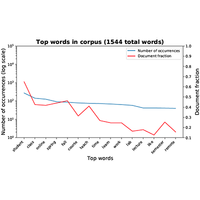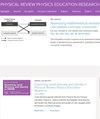对教师答复的情感和主题分析:向在线学习过渡
IF 2.6
2区 教育学
Q1 EDUCATION & EDUCATIONAL RESEARCH
Physical Review Physics Education Research
Pub Date : 2024-06-12
DOI:10.1103/physrevphyseducres.20.010151
引用次数: 0
摘要
本项目旨在了解物理系教师在 COVID-19 大流行期间过渡到在线教学的反应。我们在 2020 年春季学期后对美国的 662 名物理教师进行了调查;其中 258 人在 2020 年秋季学期后完成了后续调查。我们使用自然语言处理技术测量了 364 份 2020 年春季回复和 134 份 2020 年秋季回复的情感得分,这些回复是物理系教师填写的可选书面提示。此外,我们还确定了对这两次调查都做出回复的 100 人的情感分数变化。这些情感得分在-1 和 1 之间,分别代表完全负面和完全正面。2020 年春季之后的情感得分略微偏高,中值为 0.2347。情绪变化的分布近似正态分布,平均值以接近零为中心。分析表明,从初始调查到后续调查,平均情绪没有发生变化。为了确定两次调查回复中的主要话题,我们对数据进行了潜在 Dirichlet 分配分析。初次调查的主题分布为课程修改和技术、过渡时期的负面影响--主要是实验和作弊、考试和评估困难以及学生理解困难。在后续调查中,主题明显不同,包括秋季和春季的差异、合作学习策略、在远程空间有效的策略以及面对面实验室的好处。 美国物理学会出版 2024本文章由计算机程序翻译,如有差异,请以英文原文为准。

Sentiment and thematic analysis of faculty responses: Transition to online learning
This project aims to understand physics faculty responses to transitioning to online teaching during the COVID-19 pandemic. We surveyed 662 physics faculty from the United States following the Spring 2020 term; of these, 258 completed a follow-up survey after the Fall 2020 term. We used natural language processing to measure the sentiment scores of 364 Spring 2020 responses and another 134 Fall 2020 responses of physics faculty who completed an optional written prompt. Additionally, we determined the change in sentiment scores of the 100 individuals who responded to both surveys. These sentiment scores measured between −1 and 1 for completely negative and completely positive, respectively. Sentiment scores after Spring 2020 were slightly positive with a median value of 0.2347. The distribution of sentiment changes was approximately normally distributed with a mean centered near zero. Analysis suggests the average sentiment did not change from the initial to follow-up surveys. To identify major topics within the responses for both surveys, latent Dirichlet allocation analysis was applied to the data. The topic distribution for the initial survey is given as course modifications and technology, negative aspects of the transition—primarily with labs and cheating, exam and evaluation difficulties, and difficulties with student understanding. The topics were noticeably different in the follow-up survey with differences between Fall and Spring, cooperative learning strategies, strategies that worked in the remote space, and benefits of in-person labs.
Published by the American Physical Society
2024
求助全文
通过发布文献求助,成功后即可免费获取论文全文。
去求助
来源期刊

Physical Review Physics Education Research
Social Sciences-Education
CiteScore
5.70
自引率
41.90%
发文量
84
审稿时长
32 weeks
期刊介绍:
PRPER covers all educational levels, from elementary through graduate education. All topics in experimental and theoretical physics education research are accepted, including, but not limited to:
Educational policy
Instructional strategies, and materials development
Research methodology
Epistemology, attitudes, and beliefs
Learning environment
Scientific reasoning and problem solving
Diversity and inclusion
Learning theory
Student participation
Faculty and teacher professional development
 求助内容:
求助内容: 应助结果提醒方式:
应助结果提醒方式:


